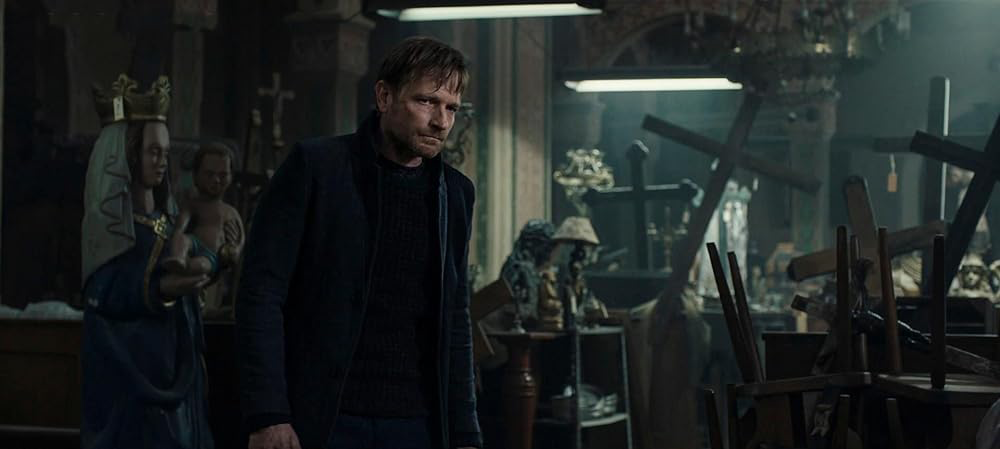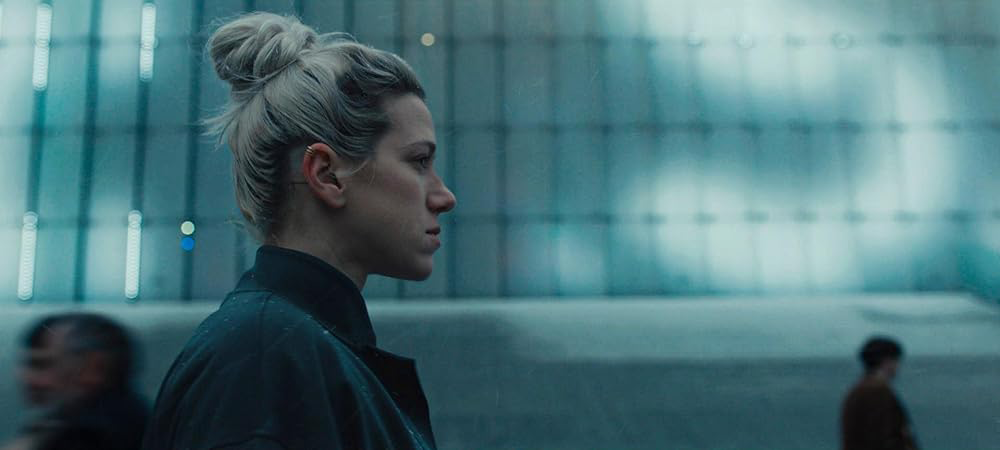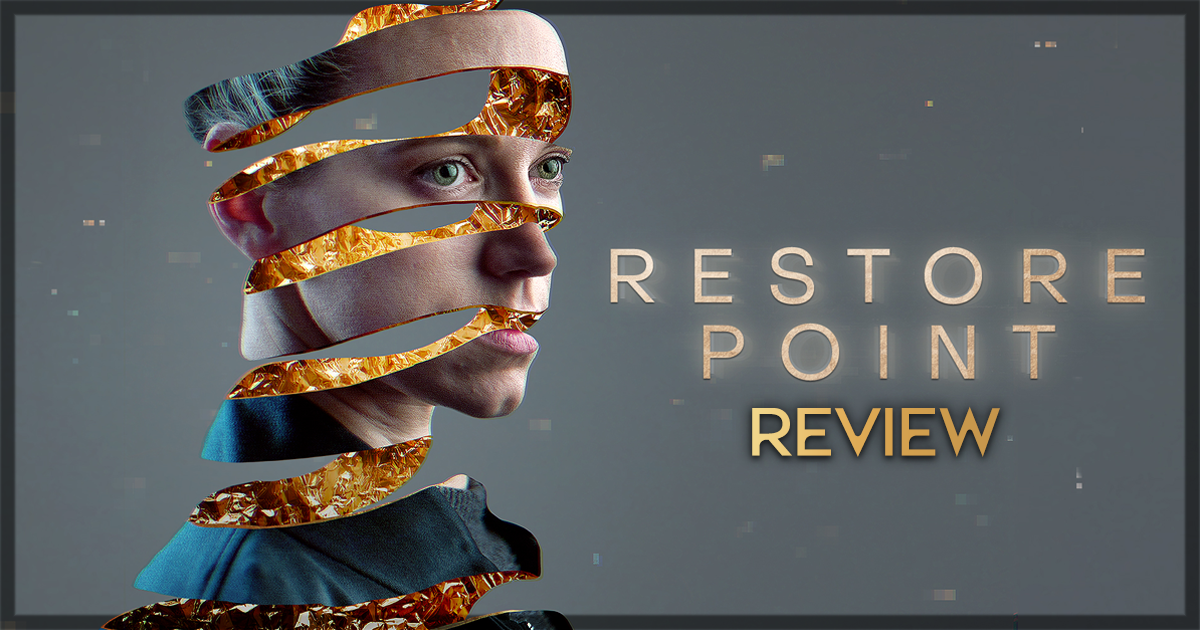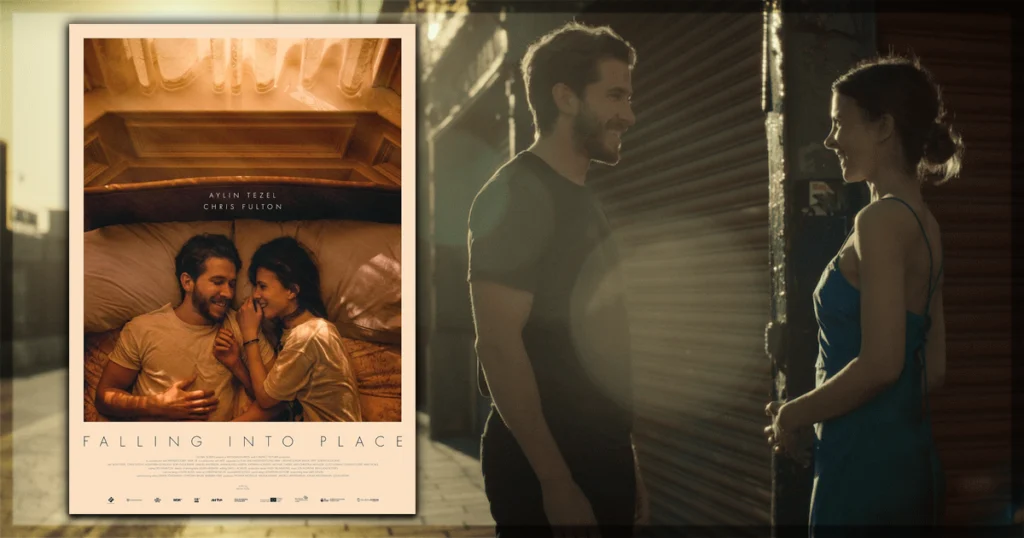The year is 2041, and death before one’s time does not necessarily mean the end of one’s life in Robert Hloz’s sleek sci-fi thriller. Restore Point takes its title from this new technology, managed in a central database in a nondescript metropolis of tarnished chrome (perhaps Prague in the future, though signs of its signature gothic architecture are all gone). Here, any person who dies in an accident, homicide, or other sudden and unnatural circumstances can have their bodies and consciousnesses restored and revived. The catch is that backups have to be made every two days, and if your counter expires without a current backup, you are gone for good. You are immortal until the end of your natural life.
Detective Em Trochinowska (Andrea Mohylová) has a Restore Point, as do her bosses. They are investigating River of Life, an anti-restoration terrorist group that seems connected to a string of premeditated kidnappings and murders occurring just after the victim’s Restore Point expires. When she is called in to investigate the murders of one of the technology’s main developers, David Kurlstat (Matěj Hádek), and his wife, they find that their life-restoring backups were also targeted, with mixed success. River of Life is immediately the prime suspect, but the motive turns out to be far more personal and far from over. As the mystery deepens, Detective Torchinowska finds herself working with unlikely parties as the corporate forces she has trusted seem more and more shadowy.

Mohylová, with a large prior career in television but few film credits, is an impressive screen presence. She is at ease in all action sequences yet never loses sight of Detective Trochinowska’s more vulnerable and artistic side. The action hero can often be an everyman, standing in for the viewer’s perspective while simultaneously performing almost superhuman feats to maintain order, restore justice, and ensure the bad guys do not get away with their plans. Detective Trochinowska is not wholly immune from those genre pitfalls, but Mohylová’s ease in front of the screen, even as her character is confronted with doubts and challenges, gives her an impressive magnetism.
On a similar note, humanity is not lost amidst technological advancements in this world. Detective Trochinowska is adept at the piano, and Restore Points show no sign of turning people into machines. This makes River of Life an odd antagonist, one driven by understandable concerns that are not immediately obvious – making their brutal methods seem especially out of line. Of course, the ethical dilemmas inherent in keeping people alive past bad luck or the vicissitudes of fate are manifold, and the corporations benefiting from this technology are far from pure at heart as Restore Point explores those twists and turns.
Restore Point is Hloz’s first feature after several shorts, and the pacing is largely well-executed despite the increased scale and time. The production design is perhaps the weakest point – not really challenging what sci-fi can do after a century of cinema –but the cinematography by Filip Marek makes every device and shadow, familiar or futuristic, appropriately unnerving. The canvas created for its high-stakes plot is not compelling by itself but works as a backdrop.
About three-quarters of the way through Restore Point, as the tension ratchets, Detective Trochinowska faces a surprising question: with her Restore Point, why is she still afraid of death? Death is a constant of stories told across time, and deaths are often the stakes taken for granted in action and science fiction films; audiences might assume that Tom Cruise’s Ethan Hunt or Keanu Reeves’ Neo will not meet their ends at the mid-film fight of a Mission Impossible or Matrix film, but realistically that outcome is entirely possible – even likely.

The question throws Detective Trochinowska off, and Mohylová’s face clearly registers the contradiction as she comprehends it. Stripping away the chance or threat of early death in many cases does not undo millennia of hardwired instincts. In this moment, Restore Point reaches at the transcendent, digging at the heart of a genre taken for granted and rooting it in humanity’s basest drives, hopes, fears, and dreams.
A confident mid-budget sci-fi with explosive action, strong dramatic pacing, and thought-provoking questions about human’s ability to tamper with nature, Restore Point is a winning combination of genre specificities and universal questions. It is highly worth seeking out, and Mohylová’s next on-screen appearance is eagerly awaited.
How Restore Point fits into the Glasgow Film Festival
The 2024 Glasgow Film Festival’s country focus is “Czech, Please!” and Restore Point joins three other films picked to spotlight the variety and innovation of Czech cinema across films not yet released in the UK. Czech cinema does not often get a wide release in the UK or US, and the festival’s country focus is a prime example of elevating under-seen contemporary works that may not get a wide release (if any release at all) through skillful programming tie-ins. Restore Point has little if anything in common with the other four films in the strand, as the collection highlights and celebrates modern Czech cinema’s diversity; it is surely only a small subset of all movies made in the country, but it is a great starting point.
Restore Point is now playing at the Glasgow Film Festival.
It’s also available to stream online. Are you interested in seeing Restore Point? Let us know by connecting with us on X @MoviesWeTexted.
You might also like…
‘Falling Into Place’ Review: Mental Health Aware Romantic Drama
‘Bleeding Love’ Review: Top Notch Acting, but the Road Trip Falls Flat



